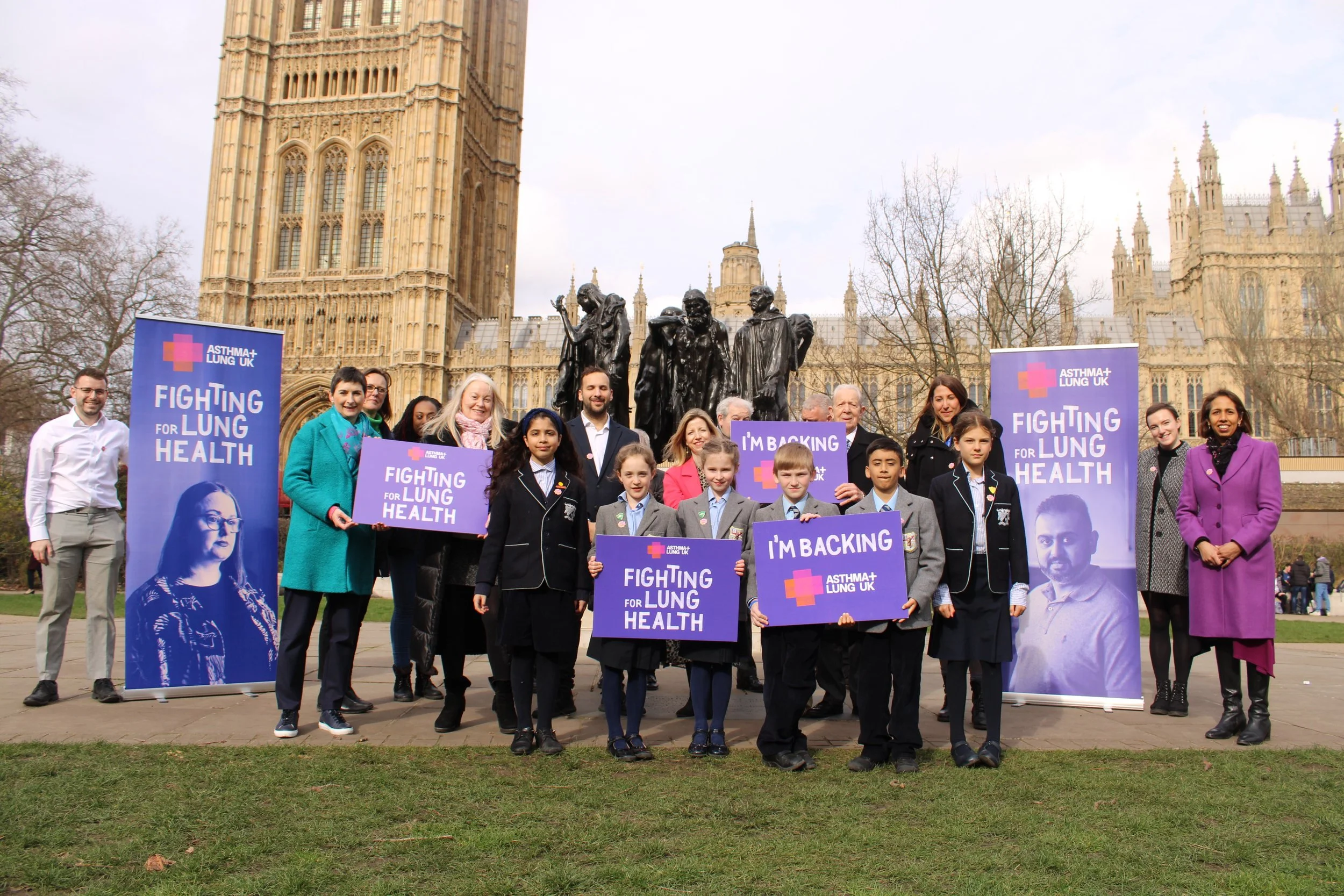Progress towards new mesothelioma treatments
Current treatment options for mesothelioma, a type of cancer, are very limited and there is no cure. But Asthma + Lung UK has funded research by Professor Dean Fennell, who is working on new treatments. In this blog he explains what mesothelioma is and the hope his research could bring to more than a thousand people diagnosed with the condition each year.
What is mesothelioma and why do we need to fund research into it?
Mesothelioma is a cancer that usually affects the tissue that lines the lungs and kills arounds 2,500 people a year in the UK. Sadly, there is currently no cure.
Mesothelioma is a really unusual cancer. It’s usually caused by asbestos, a substance that has been used in industry for a millennium, as it has excellent insulating properties. It’s a natural fibre but when it gets into the body it can cause cancer. This process takes many years - often decades.
Mesothelioma can grow to enormous dimensions in the chest and patients with it say it can feel like a straitjacket around the lungs. It's a really unpleasant tumour and we urgently need better treatments.
What makes mesothelioma so difficult?
Mesothelioma is a relatively rare cancer. Our knowledge of the biology of mesothelioma has been lacking partly due to the shortage of good quality research, and a lack of research tools to investigate it. It’s only recently that we’ve been able to use the ability to look at the genes within a cancer, for example, to understand what makes mesothelioma tick, and start designing smarter treatments.
Currently, on average around half of people with mesothelioma die within 14 to 18 months of their diagnosis. This is a dire situation that we’re aiming to change.
My research is offering hope
I developed a study called MiST, where we’re trying to find better treatments for mesothelioma. We’re testing new treatments in people who have already received the first-line treatment - chemotherapy - but where this approach has stopped working. In this study, we’re testing several new treatment approaches to see if they work better than current ones, and also to work out if we can predict which patients will respond well to each one, in some cases “before” we give the drug.
The ultimate goal is to have a range of treatment options and be able to select the right treatment for the right person, avoiding treatments that won’t work. This should mean better results plus fewer debilitating side effects and wasted time from unnecessary treatments.
We’ve recently published the results from one of the treatments we’ve been testing, and the news is good. We tested a new drug called abemaciclib on people who had a specific type of mesothelioma called “p16ink4A-negative”. We found that after 12 weeks for more than half, the tumour either shrank or stopped growing. While it was a small study, the results are really promising, particularly these mesotheliomas are very aggressive with patients living for half as long as for those without this type of mesothelioma. Around half of all mesothelioma cases are of the “p16ink4A-negative” type, so this new treatment could benefit up to half of all people diagnosed with mesothelioma each year, around 1,350 people in the UK – and slow down the progression of the disease so they have more precious time with those they love.
We’ll keep going and hope for positive results
This trial was carried out in a relatively small number of people, so more testing is needed in larger numbers of people to explore these promising results further and make sure it’s working as we think it is. But these initial results are hugely encouraging. We’ve seen no real improvement in mesothelioma treatment for decades - and we now have real hope that better treatments are around the corner.
We hope that this is the beginning of a revolution in our ability to successfully tackle this cancer.
Find out more about mesothelioma here.
This research study was supported by funding from The Victor Dahdaleh Foundation.
We empower people with lung conditions to make changes that can be transformative.
Please donate now to help make sure people with lung conditions can live well this year.











